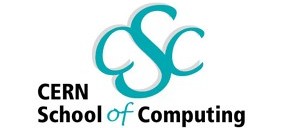Debugging Techniques
|
|
|
|
Friday 25 February |
|
|
15:05 - 16:20 |
Maintenance Block |
Lecture 5 |
Debugging Techniques |
Paolo Adragna |
|
The lecture addresses the problem of eliminate bugs from
software. It is targeted on programmers who develop software
on Unix-like platform using C/C++ language, but a large part
of the content is general purpose and can be exploited also
in a different context (platform or language). |
|
Introduction and general comments
about debugging |
|
|
In the introduction the general
background required by debugging is
reviewed
|
|
1) Noting and localizing a bug
|
|
Part one - General debugging |
|
|
The first part of the lecture presents
advices for general purpose debugging
|
|
1) Exploiting compiler feature: static
analysis, warning option, optimization
flag
|
|
2) Reading the right documentation
|
|
3) The abused cout debugging technique:
general description, disadvantages.
|
|
4) Defensive programming and the assert
macro (as a solution of cout technique)
|
|
5) The debugger. The example of gdb/ddd.
|
|
6) ANWB debugging technique: not really
a technique actually, rather a method to
flush out bugs
|
|
7) Code walkthrough: really an advice
(possibly a citation of Gerhard's
lecture)
|
|
Part two - C/C++-generated
problems and tools to solve them |
|
|
The second part addresses problems
usually generated by C/C++ programming
|
|
1) Preprocessor: problems with versions,
headers
|
|
3) System call examination and
interaction with the system: the example
of strace
|
|
5) Dynamic storage allocation: general
description of the problem.
|
|
- |
Exploitable tools: libraries (to be
linked) or external programs
|
|
- |
Libraries: MEMWATCH, Electric Fence
(with examples)
|
|
- |
Executables: YAMD, Valgrind (with
examples)
|
|
6) Incremental building: description of
the problem and citation of make
|
|
|
|
|

